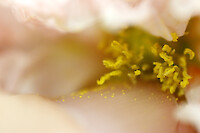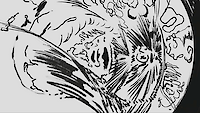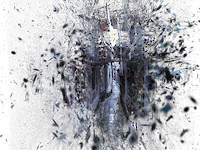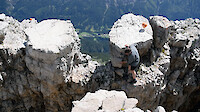Talkshops. SHARED CAMPUS PhD Community

Description
Tobias Klein (School of Creative Media, City University of Hong Kong) and Basia Sliwinska (Art History Institute, Universidade NOVA de Lisboa, Portugal) are inaugurating a new SHARED CAMPUS initiative embedded within the Social Transformation theme group. It is called TALKSHOPS, which are imagined as a series of online (Zoom) gatherings curated and chaired by us and led by PhD Students from across the Shared Campus community.
TALKSHOPS aim at intriguing participants from inter- and cross-disciplinary backgrounds where social transformation within art&design forms an umbrella for the exchange of ideas. We hope this initiative offers a meaningful platform for peer feedback and support.
The Talkshops are grounded in the practising of social justice, which we believe is foundational to pedagogy rooted in critical thinking. This fosters conditions for social transformation through encouraging learners as agentic political subjects and motivating them to struggle in the interest of more just, free and equal society. In Teaching to Transgress: Education as the Practice of Freedom (1994) bell hooks argues for a critical pedagogy that speaks to lived experiences ofvperipheral and marginalised groups, which is generative of authentic knowledge(s). hooks’ vision is at the core of talkshops departing from hook’s vision of education as the ‘practice of freedom’.
Dates 2024
• TALKSHOP #1: 17 May 2024
• TALKSHOP #2: 30 September 2024
• TALKSHOP #3: 27 November 2024
• TALKSHOP #4: 10 December 2024 - CANCELLED
• TALKSHOP #4: 17 December 2024
Expanding Sensoria
Facilitator
Tully Arnot
Date
17 May 2024
Time
10:00am GMT
Corresponding: 11:00am London / 12pm Zurich / 6pm Hong Kong, Singapore, Taipei / 7pm Tokyo time
About the Facilitator
Tully Arnot’s interdisciplinary practice explores models of plant-based multisensory perception as well as how technology mediates our relationships with the natural world, through areas including plant robotics and the simulation of nature. As an educator, Tully has specialised in Audio Description and creative workshops for people who are blind or have low vision, as well as programs for neurodivergent audiences, with a focus on creative use of technology. Arnot is a current PhD Fellow at the School of Creative Media, with Professor Zheng Bo.
Access
PhD students from across Shared Campus are invited to join – each Talkshop is limited to host a maximum of 15 partners in dialogue to enable a vibrant exchange of ideas and a collegial environment.
Please note that students from Shared Campus Full Partners and Social Transformation theme partners are given preference for activities organised by the Social Transformation theme group,
To book your place please sign up using this Google Form.
Zoom (link will be sent to the first 15 persons who sign up)

The Similarity/Difference Conundrum. Artistic and scientific experiments in trans- and undisciplinary research
Facilitator
Janina HOTH (jhoth2-c@my.cityu.edu.hk)
Date
30 September 2024
Time
10:00am GMT
Corresponding: 11:00am London / 12pm Zurich / 6pm Hong Kong, Singapore, Taipei / 7pm Tokyo time
Description
In the field of art, science, and technology, the relations between artistic thinking and scientific research are heavily debated. Should the fields be (re)united or are they ontologically separated? We will address this conundrum of similar and yet different structures in/between art-science by looking into day-to-day research practices of artists and scientists.
Thought experiments, analogical thinking, trial-and-error are standard methods in scientific research. They are also common practices for artists. Intuition, emotions, and personal beliefs, too, guide and structure how we conduct research on both sides. But there are significant differences: whereas scientists tend to search for a solution to a clearly defined problem, artists experiment to pose questions, deconstruct concepts, and explore “‘the possible’ in the sense of what is merely conceivable, the idea that all things can be perceived and conceived differently.” (Moldering, 2010, p. xv).
In the talkshop, we will discuss and explore these similarities and differences between artistic and scientific practices. By discussing experiments across art-science, the relation between the fields finds a new common ground. We move away from questions of e.g., a (re)union of the two cultures or divides in the historical constructs of objectivity/subjectivity. Instead, we will go deeper into which connections can be found and which differences exist as a delineation between art/science. Art-science research is considered as a trans- and undisciplinary field for exploratory and experimental research.
The talkshop can be a form of self-reflection on our own research. It can also be starting point for researchers who are interested in art-science. It is directed at emerging artists, makers, curators, scientists, and anyone else interested in the relationship between art, science, and technology. You are welcome to share and discuss your own interdisciplinary practice whether you are already working in art-science or are still forming your practice therein.
About the Facilitator
Janina writes her PhD on collaborative practices in art, science, and technology (RGC-funded scholarship at the School of Creative Media, CityU Hong Kong). She investigates art-science as social-epistemic practice and questions how knowledge transfer happens within and outside of research environments.
Prior to her PhD, she was a research associate at the Department for Image Science, Danube University Krems where she co-developed Digital Humanities projects and digital exhibitions as co-editor of the Archive of Digital Art. She lives and works in Hong Kong and Vienna, Austria. www.joth.me
Text to read before the talkshop
Ambrosio, C. (2014). Objectivity and Visual Practices in Science and Art. In New Directions in the Philosophy of Science (pp. 353–368). Springer International Publishing. https://doi.org/10.1007/978-3-319-04382-1_24
Access
PhD students from across Shared Campus are invited to join – each Talkshop is limited to host a maximum of 15 partners in dialogue to enable a vibrant exchange of ideas and a collegial environment.
Please note that students from Shared Campus Full Partners and Social Transformation theme partners are given preference for activities organised by the Social Transformation theme group.
To book your place please sign up using this Google Form.
Frames as thoughts; feeling as thought : Animation Practice as Research and a Non-verbal Way of Thinking
Facilitator
Çağıl HARMANDAR
Date
27 November 2024
Time
10:00am CET
Corresponding: 09:00am London / 10pm Zurich / 5pm Hong Kong, Singapore, Taipei / 6pm Tokyo time
About the Facilitator
Çağıl Harmandar (b.1992) is a Turkish animation artist and second year Practice based PhD student at Tokyo University of Arts as a MEXT scholarship fellow. She has a BFA from the School of the Museum of Fine Arts at Tufts University in Boston, MA and a MFA in Animation from the Tokyo University of Arts, Department of Film and New Media. She is currently based in Tokyo, Japan.
www.vimeo.com/cagilh
Access
PhD students from across Shared Campus are invited to join – each Talkshop is limited to host a maximum of 15 partners in dialogue to enable a vibrant exchange of ideas and a collegial environment.
Please note that students from Shared Campus Full Partners and Social Transformation theme partners are given preference for activities organised by the Social Transformation theme group.
To book your place please sign up using this Google Form.

Decoloniality and Diverse Intelligences
Facilitator
Michael JUST
Date
10 December 2024
Time
10:00am CET
Corresponding: 9am Lisbon, London / 10am Zurich / 5pm Hong Kong, Singapore, Taipei / 6pm Tokyo time
Description
This talk approaches the topic of decolonization from the perspective of embodied, spatialized cognition. Can there be a decolonization beyond the human? Here, I argue that there is a connection between decolonization and cognition in diverse embodiments and that this dynamic is mediated through “generalized domestication” (Hage), that is, generalized appropriation. If land, that is, space and repatriation are at the heart of decolonization (Tuck and Yang), the proposal here is to consider equally the multiplicities of space that radically diverse forms of cognition navigate and inhabit and thus to extend the notion of indigeneity to synthetic organisms and artificial intelligences. I specifically discuss this approach in light of world-involving, indeed world-enacting, practices such as art, design and architecture.
About the Facilitator
Michael Just is an interdisciplinary artist, PhD candidate at the City University of Hong Kong, School of Creative Media and currently guest researcher at TU Delft, Faculty of Architecture and the Built Environment. He is also a Steering Team member at DigitalFUTURES where he co-organizes the Architecture & Philosophy and Artificial Intelligence series. Michael holds MFA degrees from both the Kunstakademie Düsseldorf (Prof. Daniel Buren) and Goldsmiths, University of London and participated in the Whitney Museum of American Art Independent Study Program in New York City. Recent classes taught include institutions such as HKBU AVA and the China Academy of Art, Hangzhou.
https://www.mjust.com
https://digitalfutures.international
Access
PhD students from across Shared Campus are invited to join – each Talkshop is limited to host a maximum of 15 partners in dialogue to enable a vibrant exchange of ideas and a collegial environment.
Please note that students from Shared Campus Full Partners and Social Transformation theme partners are given preference for activities organised by the Social Transformation theme group.
To book your place please sign up using this Google Form.

Moving With Mountains
Facilitator
S†ëfan SCHÄFER
Date
17 December 2024
Time
11:00am CET
Corresponding: 10am London / 11am Zurich / 6pm Hong Kong, Singapore, Taipei / 7pm Tokyo time
Description
In June 2023 s†ëfan schäfer started his Professional Doctorate (PD) at DAS Research, lectorate of the Academy of Theater and Dance, entitled “Breaking Apart Together: Performing affective design with dying mountains and glaciers”. Given the increasing mortality rate of glaciers and mountains in the Alps and Iceland: What role can performance and design play in enabling humans and more-than-humans to face and respond to the death of glaciers and mountains? Can mountains and glaciers be equal collaborators in the design process regarding climate crisis? How are both, humans and more-than humans moved emotionally by the movement of mountains and glaciers as they cope with (future) ecological grief?
About the Facilitator
s†ëfan schäfer is an Amsterdam-based designer and researcher investigating the power of death and commemorative ritual in relation to environmental devastation. All projects result in various media and are declared D.E.A.D. (Death. Environment. Anthropocene. Design). They have been internationally exhibited and are close collaborations with people and institutions of different fields: for instance, anthropology, poetry, music, film, hacking, dance, theatre, funeral industry, green funeral activism.
Instagram: let.death.dance.again
AHK information PD
Professional Doctorate website information
Access
PhD students from across Shared Campus are invited to join – each Talkshop is limited to host a maximum of 15 partners in dialogue to enable a vibrant exchange of ideas and a collegial environment.
Please note that students from Shared Campus Full Partners and Social Transformation theme partners are given preference for activities organised by the Social Transformation theme group.
To book your place please sign up using this Google Form.
